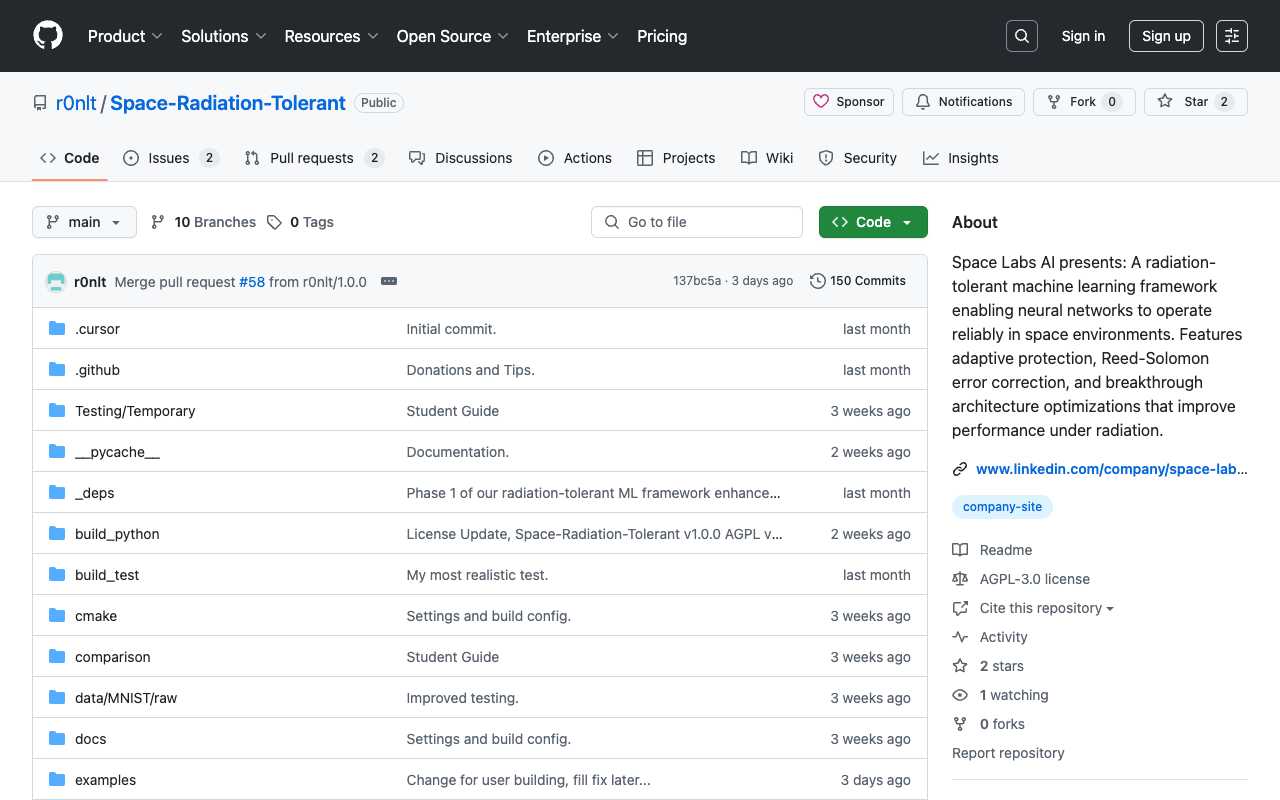Space-Radiation-Tolerant - An open-source framework for deploying AI in extreme space radiation environments

Space-Radiation-Tolerant is an innovative open-source framework designed to help machine learning models operate effectively in the harsh conditions of space. Developed in C++ with Python bindings, it provides a robust solution for deploying AI applications that can withstand extreme radiation environments. This framework is essential for ensuring that AI can function reliably beyond Earth, where radiation levels can be detrimental to traditional computing systems.
The framework incorporates advanced features such as adaptive protection mechanisms and Reed-Solomon error correction to enhance the reliability of machine learning models in space. These technologies help to detect and correct errors caused by radiation, allowing neural networks to maintain their performance even under challenging conditions. By utilizing a combination of C++ and Python, Space-Radiation-Tolerant makes it accessible for developers familiar with either programming language, facilitating the integration of AI into space missions.
Imagine deploying powerful AI systems that can analyze data, make decisions, and operate autonomously in space, all while being protected from the harmful effects of radiation. Space-Radiation-Tolerant opens up new possibilities for space exploration, satellite operations, and other applications where reliability is paramount. This framework not only supports the development of resilient AI but also encourages collaboration and contributions from the open-source community, fostering innovation in the field of space technology.
In conclusion, Space-Radiation-Tolerant is a groundbreaking framework that empowers developers to create machine learning models capable of thriving in extreme space environments. To learn more and get involved, visit Space-Radiation-Tolerant on GitHub .